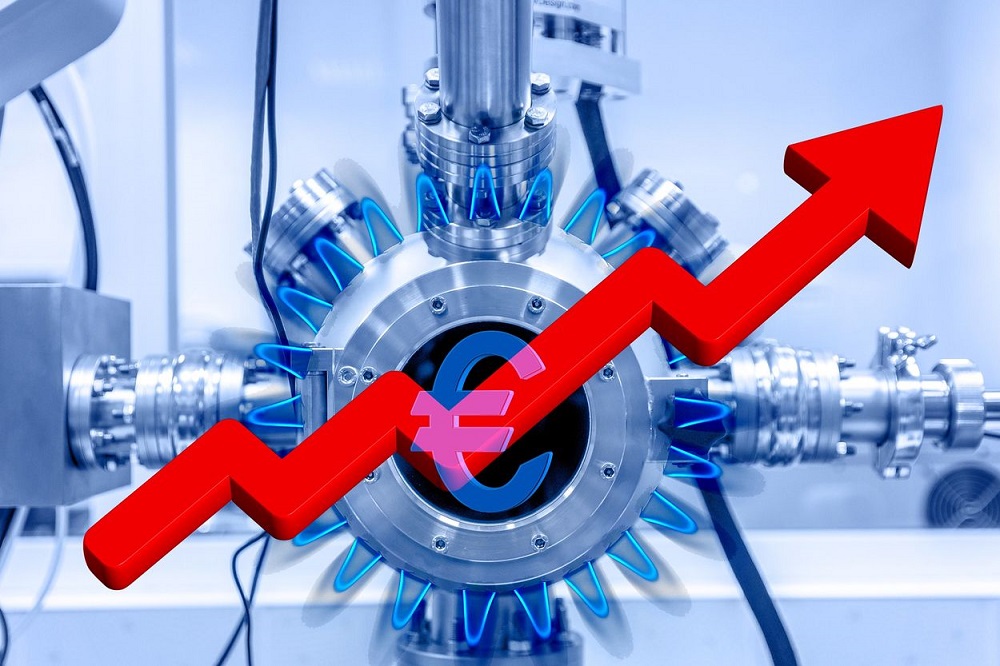Thursday, November 17, 2022
Cost transparency secures long-term supply relationships
In the face of sharply rising energy prices worldwide, BME expert council "Global Sourcing" has recently discussed possible solutions for purchasing in a difficult international environment.

Source: © Gerd Altmann/pixabay.com
Article Cost transparency secures long-term supply relationships for Downlaod PDF
Energy costs are currently the central price driver for companies. Industrial purchasing has been searching with all its might for suitable solution options. The topic was also the focus of an exchange of views by the Global Sourcing expert council of German Association of Supply Chain Management, Procurement and Logistics (BME). More than 20 participants, who took part in the discussion round, came to the conclusion that cost transparency secures supply relationships in the long term!
Previously, the Global Sourcing specialist group had compiled the following findings: Savings or switching to renewable energies - the business community's answer to this question has many facets. At the same time, however, the pressure on them has been growing. In the international competition, high energy costs are increasingly a clear disadvantage. In terms of energy costs, the price gap between Germany and other European countries has been widening. These price differences are even more visible when looking at China or the USA. While politicians are primarily responsible for energy prices, the handling of energy costs is the task of purchasing. "Companies are currently turning over every stone so that cost drivers and cost components in the energy sector can be identified or optimized. In the process, SMEs in particular are coming up against transparency limits in the global supply chain," emphasizes Olaf Holzgrefe, Head of International and Head of the BME's Global Sourcing expert council.
Global sourcing has already began in Germany. However, the topic of energy is an international task, starting from the domestic market. Currently suppliers are demanding energy forecasts beyond the coming year. At the same time, the number of desired deviations in the contracts continues to fall. The specialis group participants report a maximum of five percent; if it is more, spot prices have to be paid. "We are asking ourselves how we are to reliably forecast energy consumption in the company for 2024 and 2025 within such narrow limits," says Ingolf Oßfeld, Global Head of Purchasing & Logistics at Aichele Group GmbH + Co. KG.
At the same time, the price calculation of suppliers has been creating new challenges: What are the price components in the product? And which of these are energy costs? Transparency is therefore in demand. "This is where buyers come up against limits, because suppliers shy away from cost transparency. Larger companies has been successfully countering this with the help of artificial intelligence or indicator analyses. This creates know-how and negotiation options within the company," says another buyer. However, in times of comprehensive challenges in global supply chains, not every medium-sized company can make this effort.
The current problems in supply chains are huge. Partly because this is the place where it is important to spot the black sheep. "We have been able to identify individual customers who have favorable long-term energy contracts, but who exploited the current situation for their own benefit and rode the price wave," criticizes a buyer from the trade group. Cost transparency protects and secures long-term cooperation. "If we determine together with the supplier that the surcharges are necessary, we can do our homework together," adds the purchasing expert.
However, the open calculation does not always fall on open ears. This is also the case, he says, because in many situations the price factor "energy" is not recorded singularly. Mostly, energy costs are recorded in general, according to the tenor of the expert group. The share of energy in the unit price? Not everyone has this ready at the push of a button. Creating transparency here is also a step into the future, because one thing is clear: energy prices will not fall back to pre-crisis levels.
Digitization is one possible answer in this context. Another is to sit down with the partner and jointly create transparency. "Only if we know the framework conditions and identify the shares that fall here, for example, on the energy factor, can we work out solutions, initiate optimizations or identify weak points. The goal is to work with our suppliers on a long-term basis," states Bodo Schröckert, Head of International Strategic Purchasing at Roth Industries GmbH & Co. KG.
It is important to build up trust - this has also become clear in the discussions of the BME specialist group. Fundamentals such as non-disclosure agreements, clear definition of processes, but also openness in all components (material use, logistics, personnel, production, etc.) are indispensable. Both sides are ultimately concerned with ensuring a long-term partnership and planning security for order quantities.
About BME Global Sourcing expert council
More than 20 BME specialist groups deal with all the important details relating to purchasing, logistics and the supply chain. The Global Sourcing expert council focuses in particular on supply chains, global networking and diversification.
Contact
/f/104752/5760x3840/4e015eb085/bme_holzgrefe_jgjgey1a4382.jpg)